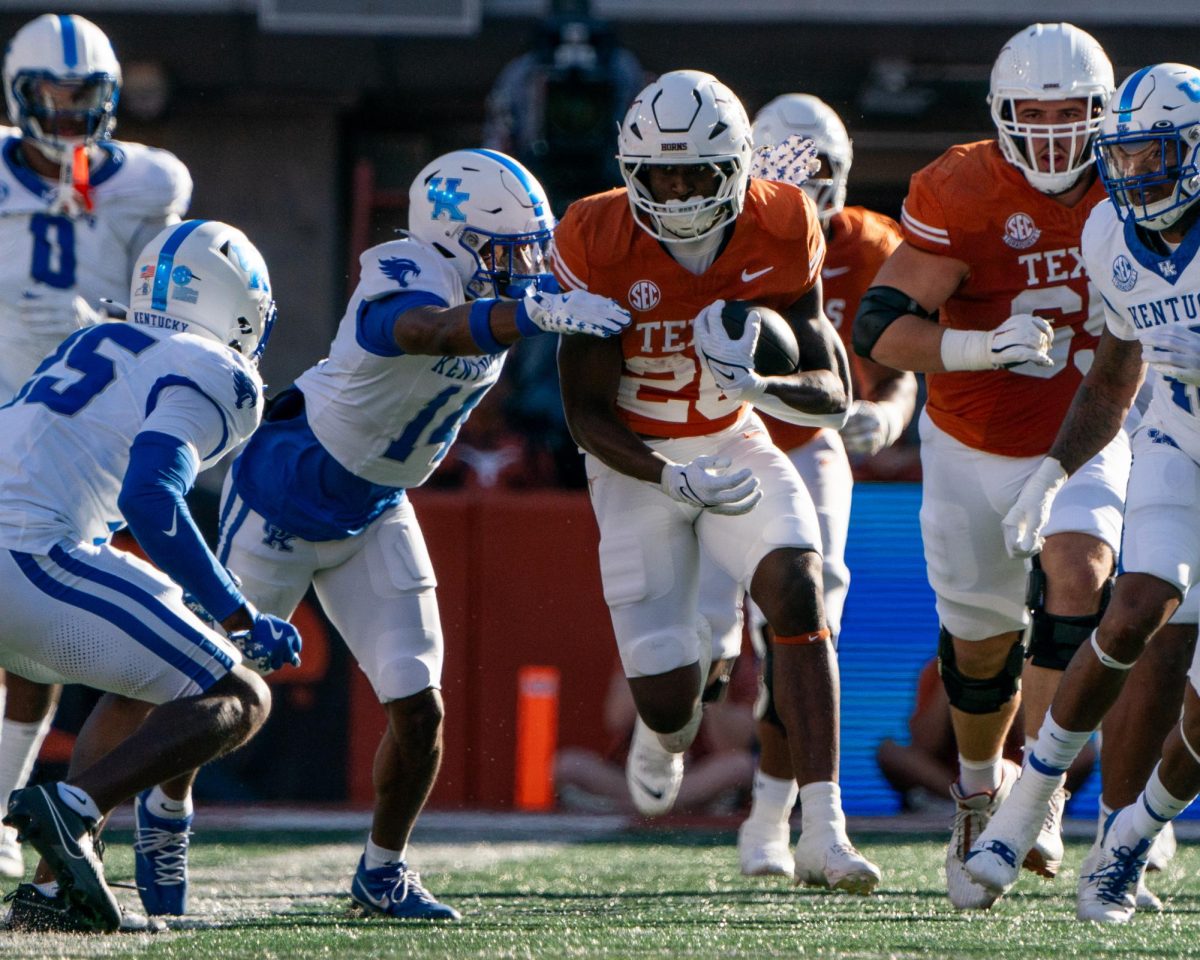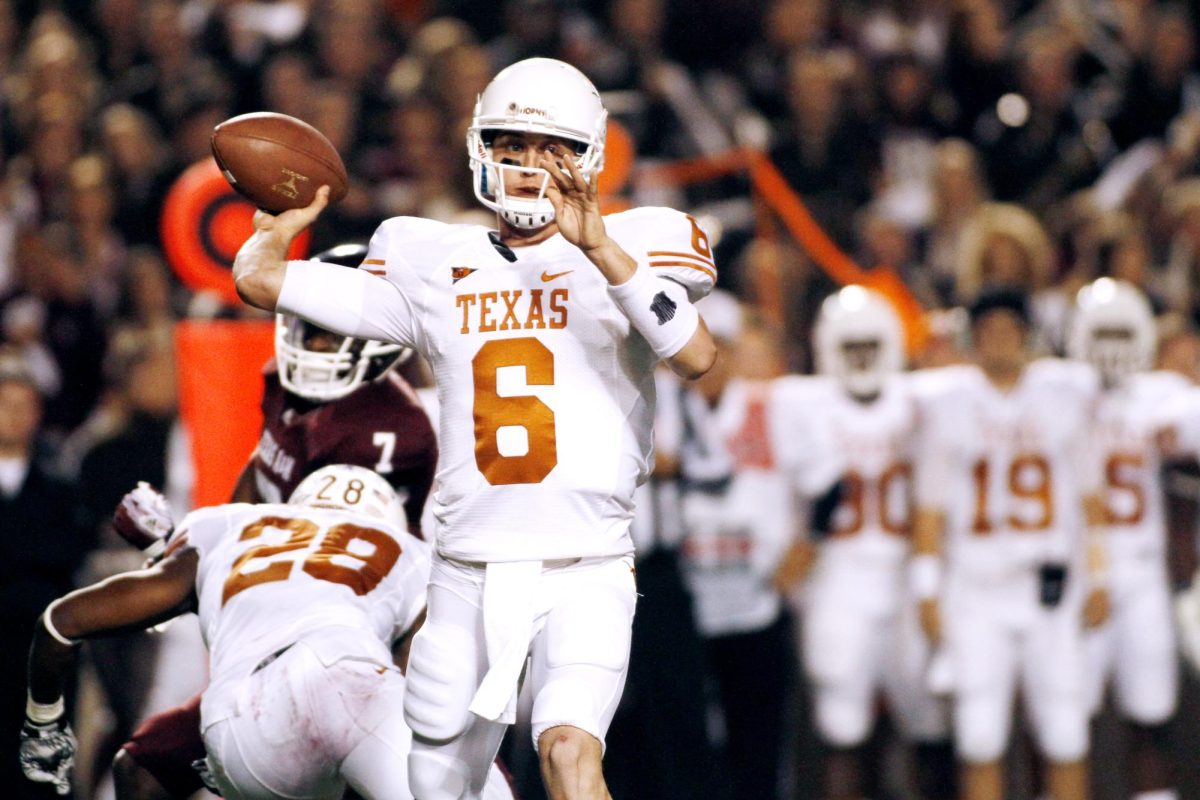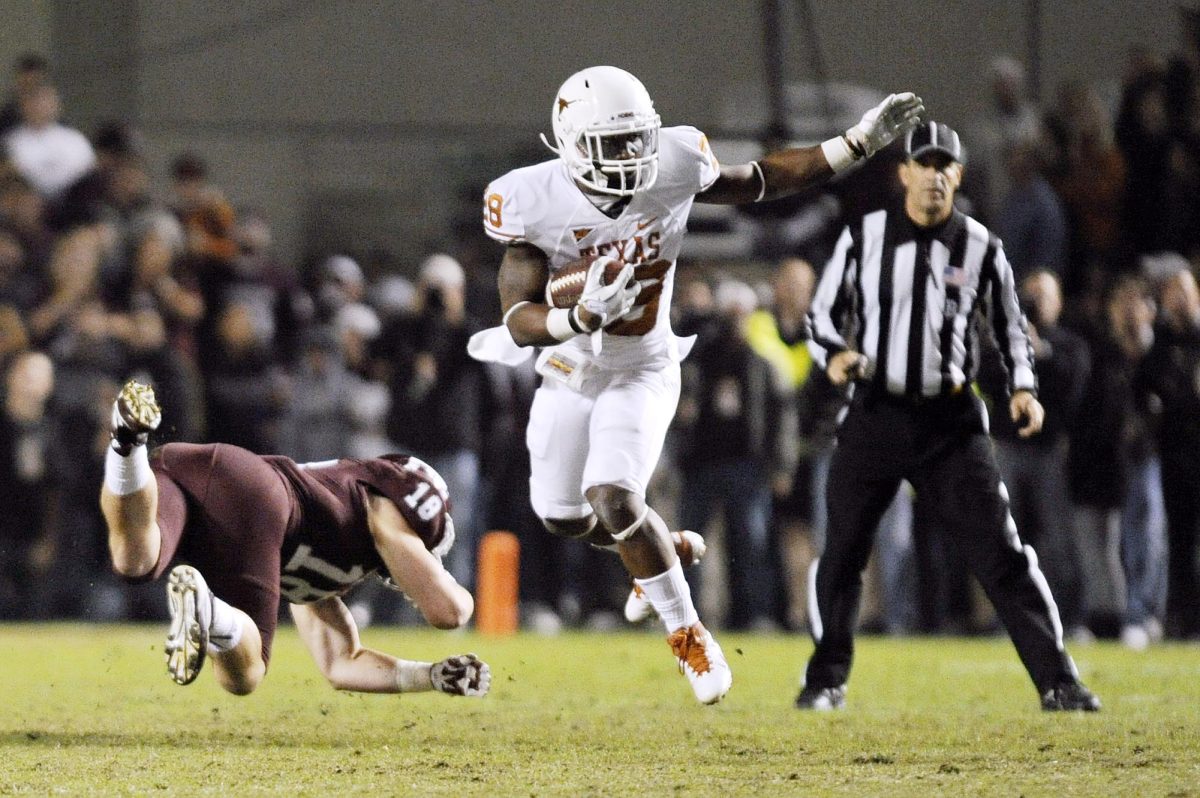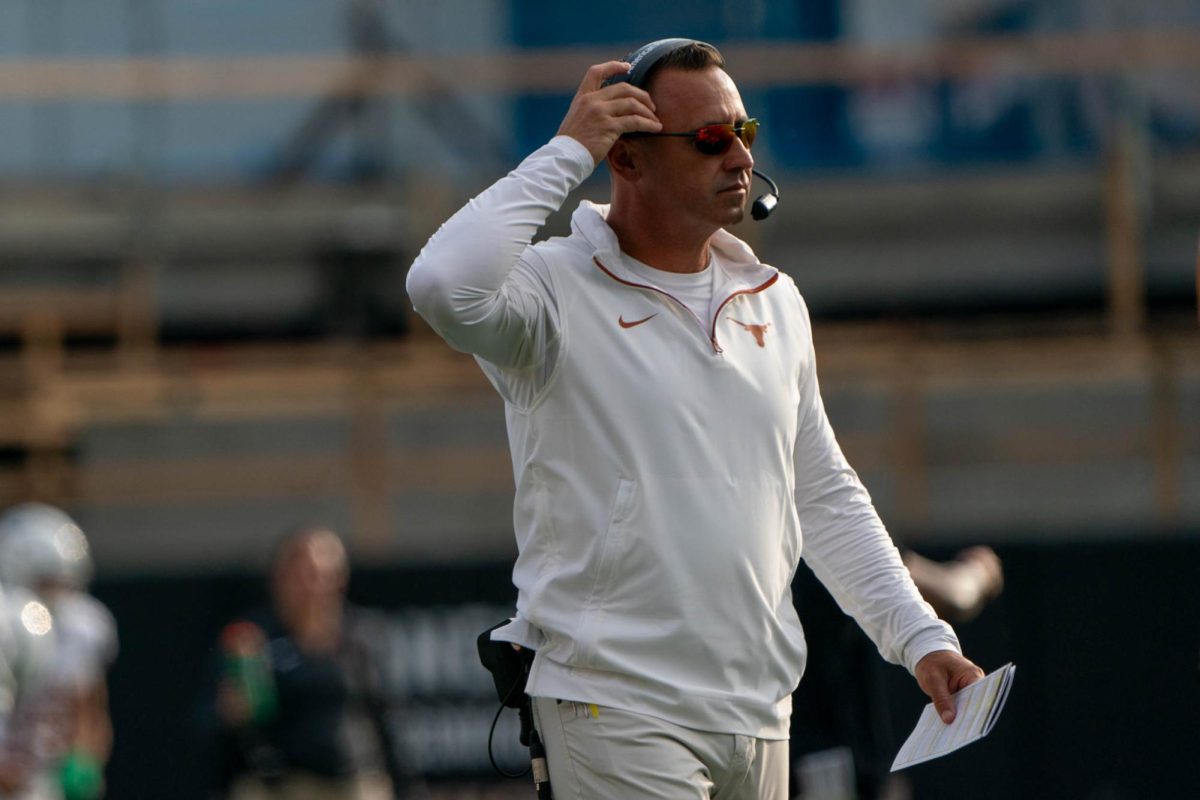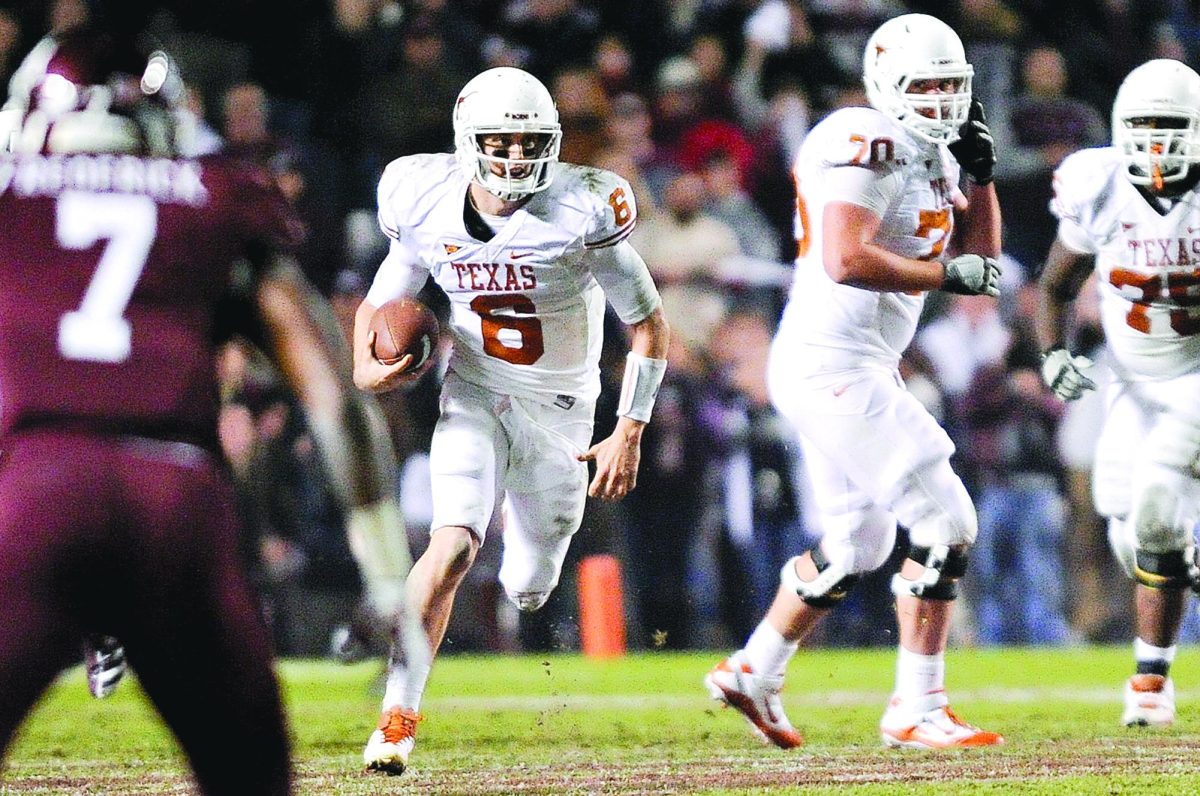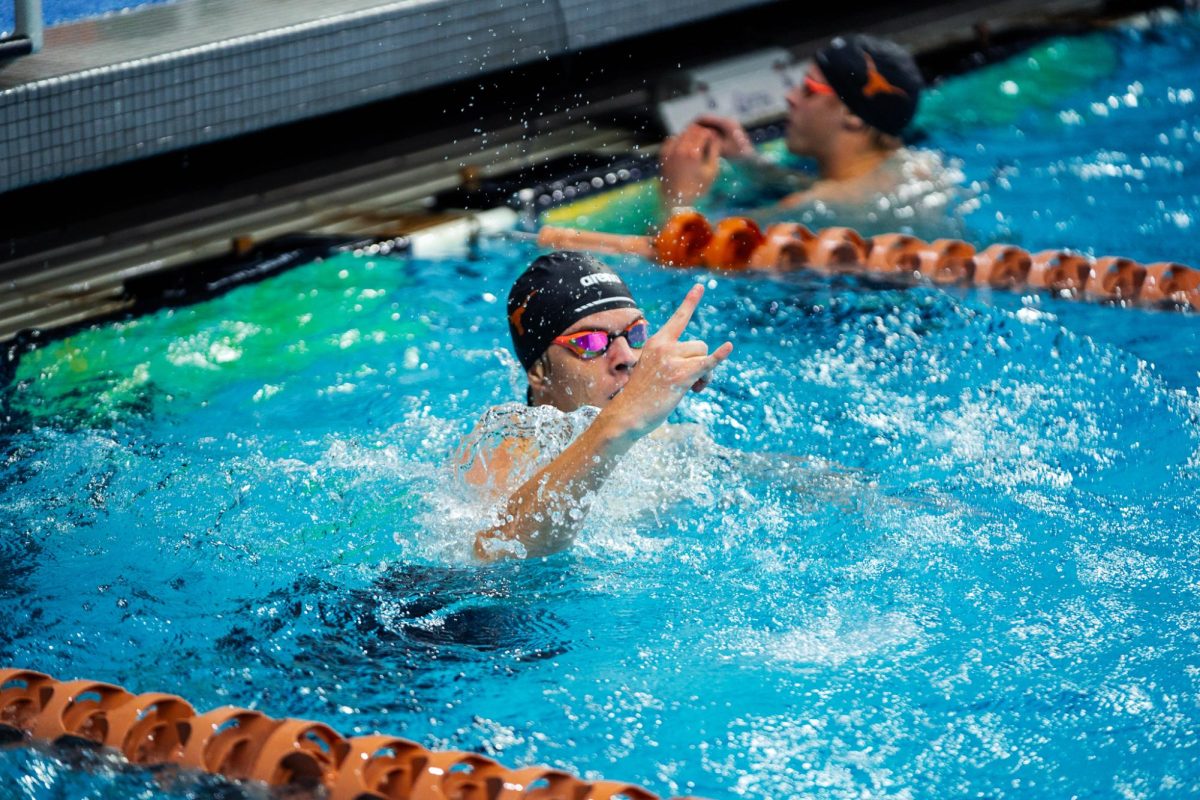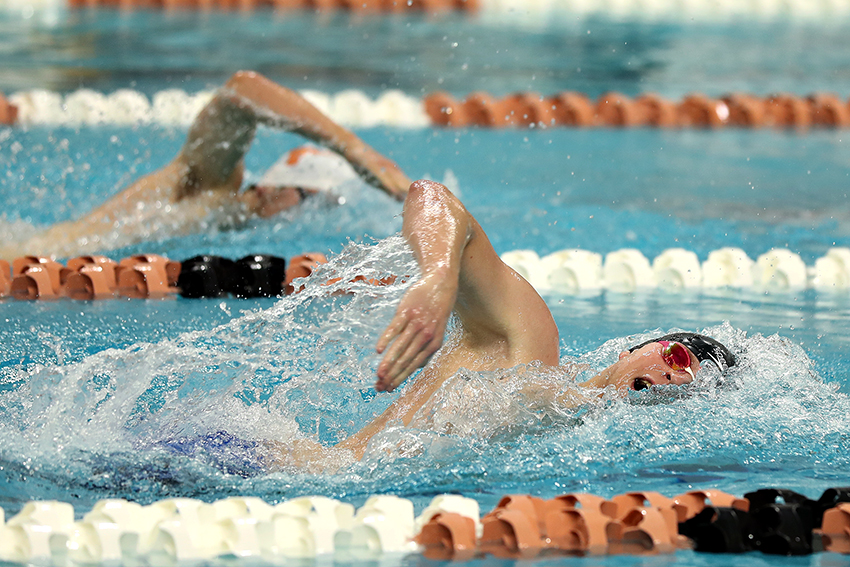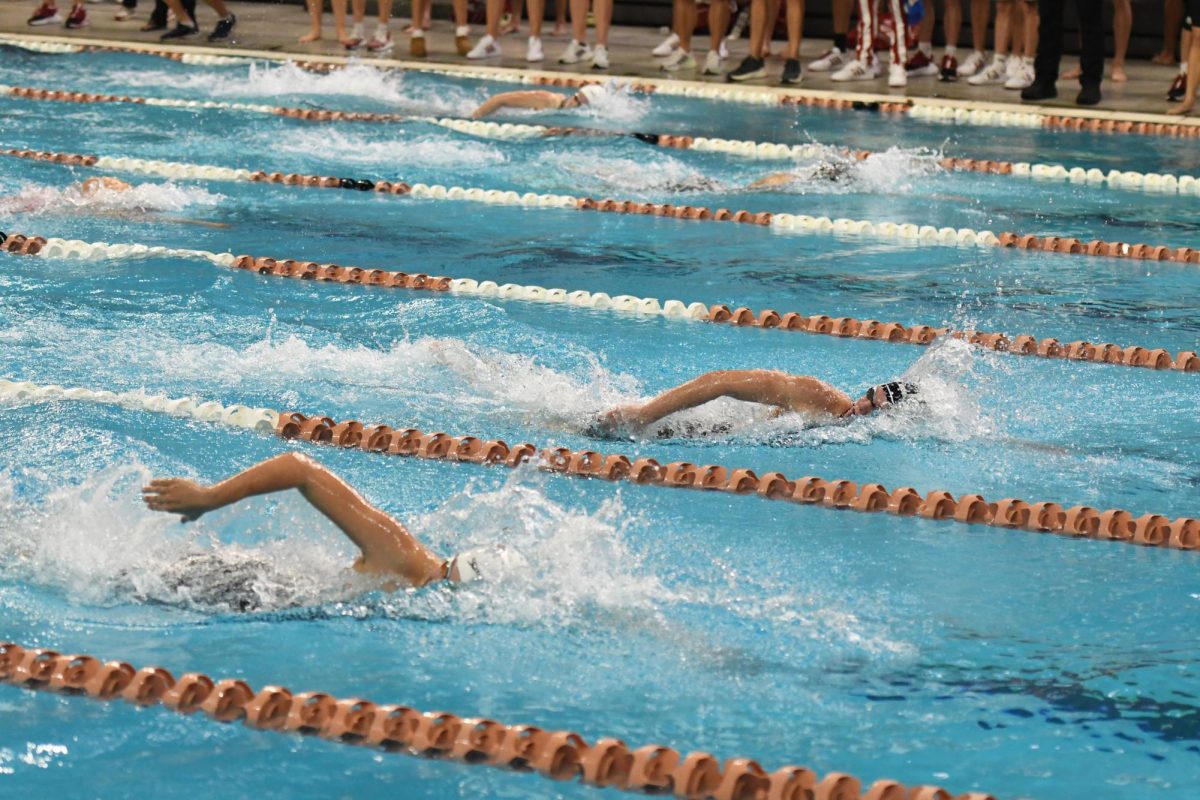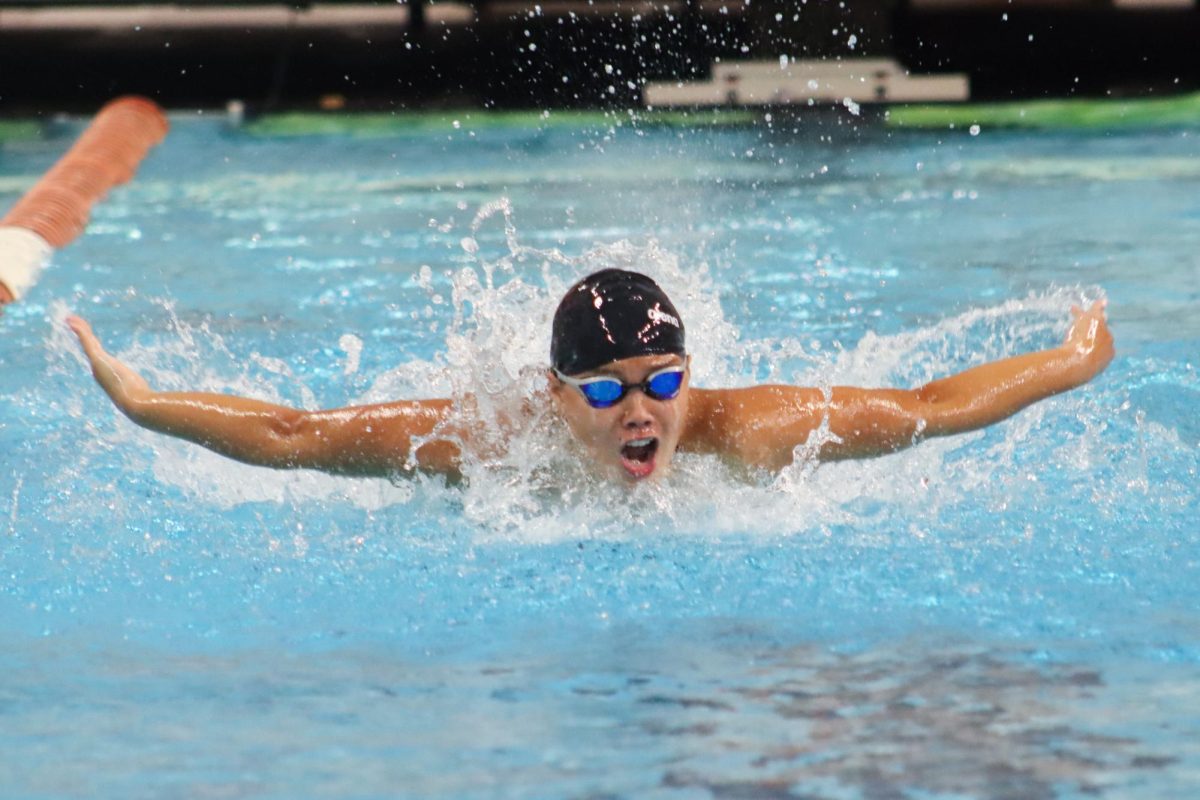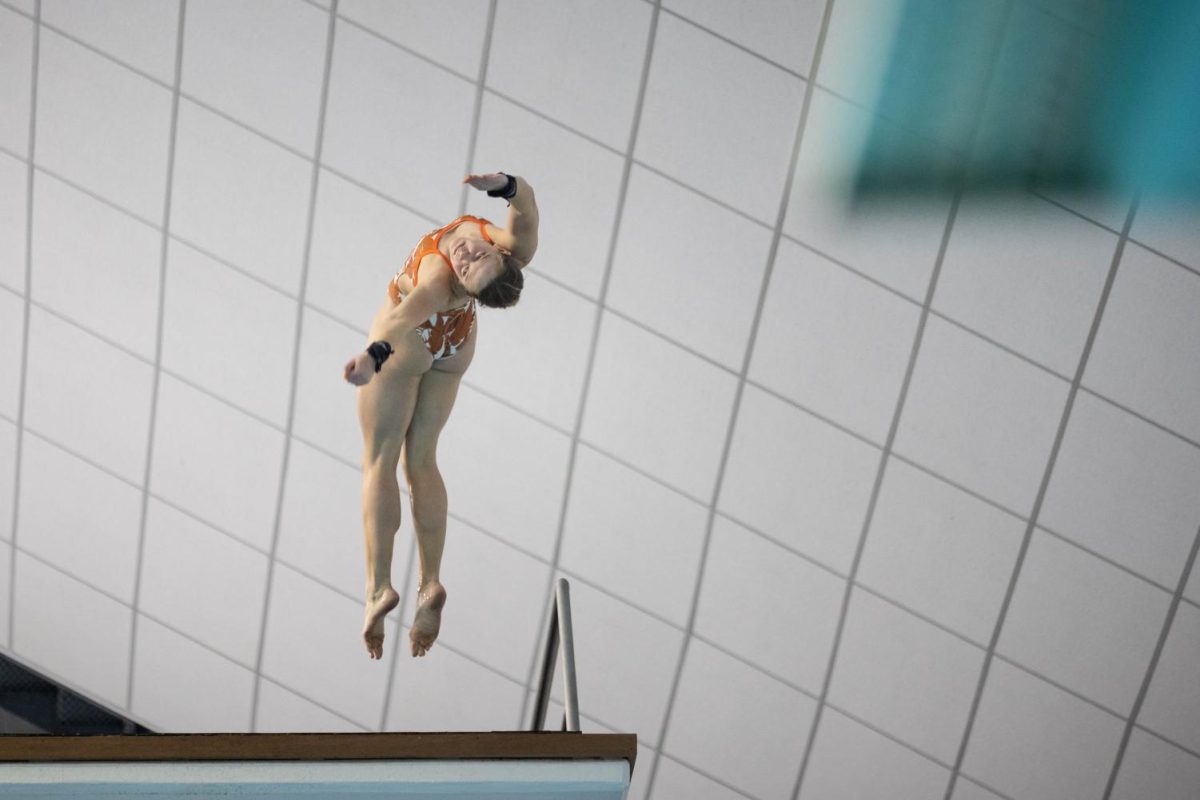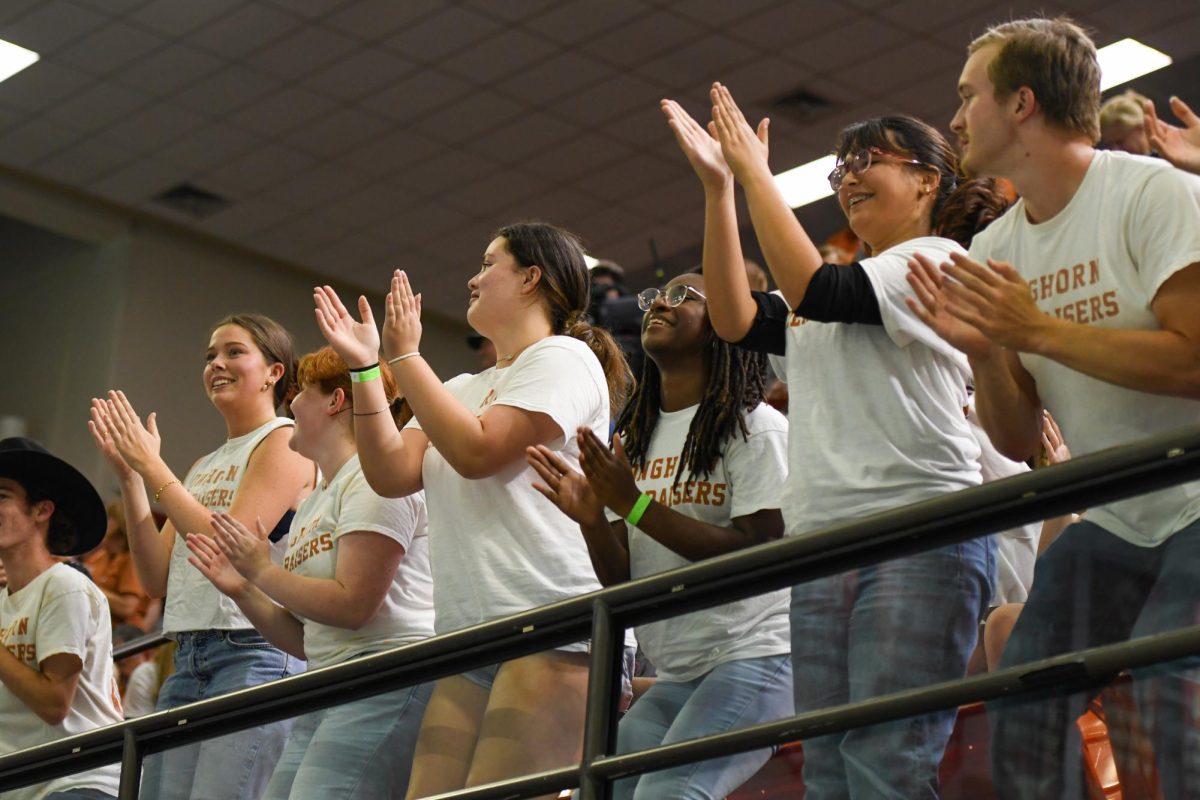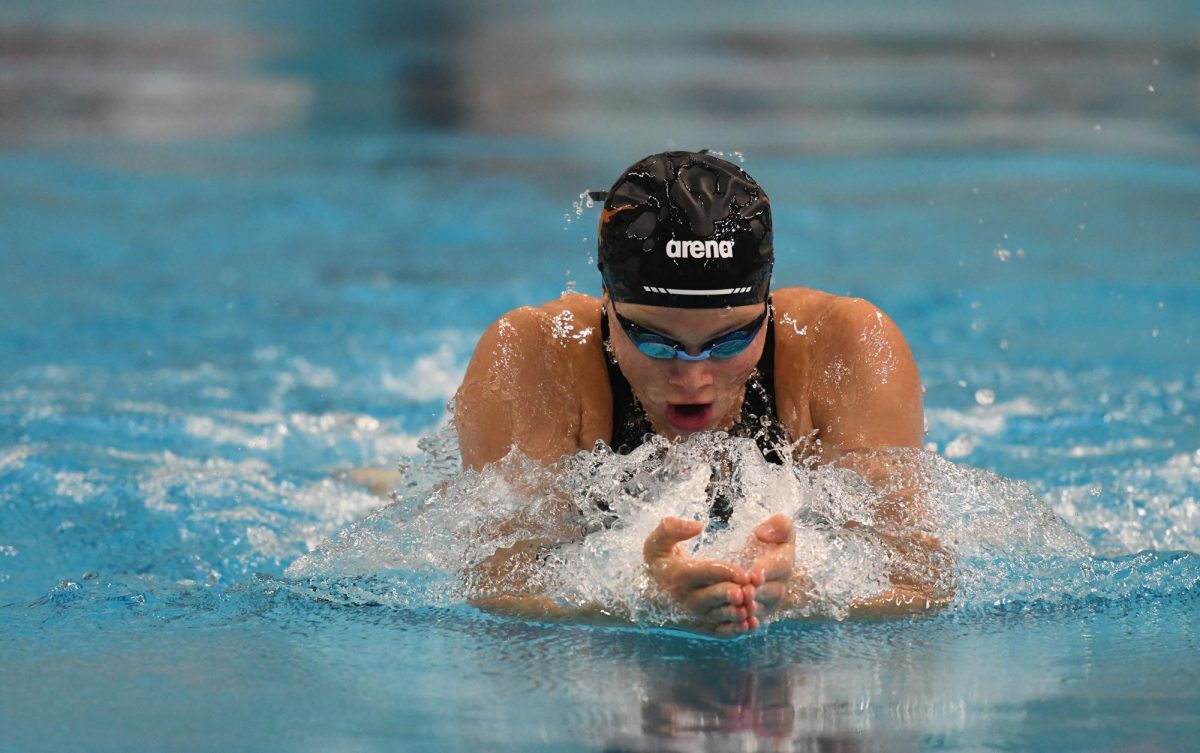Freshman heptathlete Petter Olson sat down and talked about his journey from Sweden to Texas, and breaks down the key ingredients for success during a grueling seven-event competition.
The Daily Texan: How did you get involved with track and field?
Petter Olson: I didn’t start competing in track until I was 12 years old. I was involved in club track through Malmo AI in Sweden because my school did not have sports like we do here. Soccer is the biggest sport in Sweden and most all the kids played. I started when I was seven and could have been decent at it, but I fell in love with track and figured I could have a brighter future there.
DT: At what point in your track career did you find an interest in multi-event competitions like decathlons and heptathlons?
PO: Actually, I got involved with decathlons through one of my biggest idols: former UT decathlete Trey Hardee [2005 NCAA Outdoor Champion, 2008 Olympian and 2009, 2011 World Outdoor gold medalist]. I met him in Sweden two years ago while he was visiting my town Malmo, Sweden’s third largest city, and invited him to come to my place. We developed a close friendship and he also introduced me to a possible future at Texas.
DT: Which of the seven events are your specialties?
PO: I’ve always been a pretty good jumper and I like the distance running events because they’re more of a fight and challenge between the guys running next to me.
DT: What has been both the most enjoyable aspect of your track career as a Longhorn thus far?
PO: I absolutely love the opportunity I have to train as a team with the other guys. It has been such an amazing experience transitioning from competing alone as a one-man team back home, to this. I love the fact that we can all line up together and run the stands of the stadium or run 300s as a team at practice.
DT: What is the most challenging part?
PO: Mental toughness is such a key thing to maintain in the heptathlon since it’s many events over a two day period. I have to try and remember that I won’t be able to do perfectly in all of them, and learn to leave each event behind me and focus on the next one. When it’s going good the competition is easy because I’m on a roll. But my mental attitude plays the biggest part when my body’s tired and I’m hurting.”
DT: How, and at what point do you usually start preparing before a meet?
PO: A good sleep and nutrition pattern intensifies about a week in advance. I just try to eat larger amounts of food so I am stored up with a lot of energy — I usually choose pasta or rice because I know that when the meet comes, I’ll stick to just nutrition bars and Gatorade. Conserving energy is so important for meet days because the heptathlon differs greatly from the structure of other events. Other events require short bursts of energy followed by rest — but I am expected to maintain a continuous level of intensity and rigorous mental focus for long periods of time.
DT: What were some ups and downs during the Big 12 Indoor Championships prior to you being awarded the gold?
PO: On day one of Big 12s I fouled my first two throws in shot put — and we only get three. After that throw I was really discouraged, knowing I had placed myself at a disadvantage going into the next event. It’s the same thing as hitting the cage twice in discus, or failing to clear the entrance height in pole vault — that automatically causes a set back. But the second day I performed very well in hurdles and the pole vault. At first I didn’t think I was going to end up finishing where I wanted in the end, but the second day I PR’d [set a personal record] a lot and compensated for my mess up the day before. When I came back to school, people that had never talked to me before were congratulating me. I was so honored to be No. 1 and represent Texas that way.
DT: What has helped you push through experiences like this, especially at larger meets?
PO: I think the coaches are doing a great job enforcing the positive attitude because they know what it takes to endure the two days. I’ve also learned that I can recover from a bad performance, but it’s very seldom that everything just comes together perfectly all at once in the decathlon or heptathlon.
DT: What do you do during your down time between events?
PO: I usually don’t have much down time, but if I do it’s right before pole vault. I’m able to hold off jumping the first few entrance heights and don’t enter the competition until later. I like to read books, listen to music and text my girlfriend during this time. I think a lot of people — athletes in particular — have one small unique thing that they do to make them feel more at home. John Mayer’s song ‘Gravity’ is one of my favorites. My girlfriend Magdalena is back home in Sweden, but she’s always supporting me by following the results and texting me words of encouragement.
DT: What will be your focus going into the NCAA Indoor Championships this weekend?
PO: During this week and the week before I know what I have to do physically when I get there. So mentally I have to go back to a time when a certain event went right for me, and try to remember how that felt. Once competition day comes, I want to bring a lot of excitement into each and every event, knowing that all the small things will come together if I am mentally prepared.
DT: What are your personal goals for the meet, and are there any particular competitors you’re looking to oust?
PO: I am ultimately aiming to beat as many guys possible in order to boost myself into the top five going into the last event. Being in the top gives me something to strive for and push past. University of Arkansas’s Gunnar Nixon will be the man to beat in the competition.
DT: How will you attempt to separate yourself from the other competitors as you approach the final events?
PO: It always comes down to the last event — the 1000-meter run. Most heptathletes are always nervous about this event throughout the whole competition — everyone dreads it. But I’m going to do whatever it takes during that run to give myself an edge and put myself in the greatest possible position to win.

